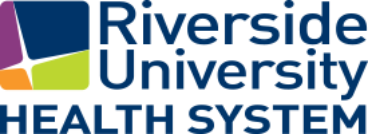Vascular Thoracic PGY 1
Goals
Riverside County Regional Medical Center will provide a learning environment for the PGY-1 resident to develop cognitive and technical skills in management of basic vascular and thoracic pathophysiology as well as basic principles of fluid resuscitation and electrolytes management. Clinically, residents will assess surgical pathology pre-operatively, develop clinical judgment on managing these issues, and learn operative skills to address the problem. Careful postoperative care and follow up will be emphasized.
Objectives
Medical Knowledge
- Describe the anatomy of the chest wall
- Explain the pathophysiology of pleural effusion
- Distinguish between transudative and exudative pleural effusions
- Describe the surgical techniques for tube thoracostomy and be able to manage the chest tube day to day.
- Promptly identify the potential post-operative complications of thoracic surgery and treat them appropriately.
- Be able to interpret chest radiographs and CT Scans
- Understand and describe arterial and venous anatomy of the the abdomen and lower extremities.
- Understand and explain the classification of chronic venous insufficiency
- Describe appropriate stage-specific non-operative and operative managements of chronic venous insufficiency.
- Summarize the incidence, epidemiology, and risk factors associated peripheral vascular disease.
- Describe the potential complications arising from disorders in electrolytes and in under or over resuscitation.
- Be able to manage blood glucose levels in the diabetic patient.
- List the differential diagnosis of the patient with chest pain, low urine output, hypotension, hypertension, and hypoxia.
- Describe the important history and data to be taken prior to central line placement.
- Discuss clotting factors and how they interact (coagulation cascade).
- Discuss the role of the following factors in maintaining homeostasis in the coagulation pathways:
- Protein S
- Platelet granules
- Protein C
- Endothelial cell
- Platelets
- Antithrombin III.
- Promptly identify the potential post-operative complications of vascular surgery and treat them appropriately.
- Discuss wound care management in the emergency department and other settings, including management of drains and tubes inserted into various body cavities.
- Explain the characteristics of basic surgical skill, including: sterile technique,
- Incisions, wound closures, knot tying, handling of tissues and selection/use of operating instruments
- Perform ankle-brachial-index measurement and be able to intrepret the results
- Refined ability to interpret radiographic findings, EKGs, laboratory data, and intravascular and intra-cranial monitoring systems.
- Fundamentals of risk factor modification in patients with peripheral vascular disease
Patient Care
- Establish basic proficiency in providing pre-operative and post-operative care (writes appropriate pre-op and post-op orders for floor patients, handles nursing calls appropriately, and manages most routine post-operative care with minimal intervention by supervisor).
- Take an appropriate history to evaluate patients with general surgical issues to include:
- A complete history of present illness
- Presence of any co-morbidities
- A review of social and family history impacting the present problem
- A complete review of systems
- Develop a proficiency in evaluation and interpretation of the different diagnostic modalities including: X-Rays, ultrasounds, CT scans, Contrast studies and MRIs.
- Discuss treatment options, risks and potential complications of patients with general surgical issues.
- Demonstrate skill in basic surgical techniques, including:
- Knot tying
- Exposure and retraction
- Knowledge of instrumentation
- Incisions
- Closure of incisions
Professionalism
- Understand the importance of honesty in the doctor-patient relationship and other Interactions.
- Learn how to participate in discussions and become an effective part of rounds, attending staff conference, etc.
- Complete all assigned patient care tasks for which you are responsible or provide complete sign out to the on-call resident.
- Maintain a presentable appearance that sets the standard for the hospital this includes but is not limited to adequate hygiene and appropriate dress. Scrubs should be worn only when operating or while on call.
- Provide an appropriate orientation and guide all medical students as to their roles and responsibilities during the rotation.
- Complete the required Professionalism in Surgery curriculum for the current month
Systems-Based Practice
- Understand the cost implications of medical decision-making
- Develop a cost-effective attitude toward patient management.
- Complete the required System Based Practice curriculum for the current month
Practice-Based Learning & Improvement
- Demonstrate the ability to:
- Evaluate published literature in critically acclaimed journals and texts
- Apply clinical trials data to patient management
- Participate in academic and clinical discussions
- Use the library and databases on on-line resources to obtain up to date information and review recent advances in the care of the surgical patient.
- Complete the Personal Learning Project in the Practice Based Learning and Improvement curriculum for the month
Interpersonal & Communication Skills
- Work as effective team members
- Cultivate a culture of mutual respect with members of nursing and support staff
- Complete the Interpersonal and Communication Skill curriculum for the quarter
SCORE Modules
Review of the following modules from score are recommended during this rotation:
- Disease/Conditions
- Venous Thrombosis – Embolism
- Pneumonia - Hospital Acquired
- Pneumothorax
- Hemothorax
- Pleural Effusion – Empyema
- Cardiac Tamponade
- Hyperthyroidism
- Operation/Procedures
- Percutaneous Vascular Access
- Chest Tube Placement
- Sclerotherapy, Peripheral Vein
Assessment
- Formative evaluation will be completed by the attending faculty at the end of the rotation
Conference Attendance: Conference attendance is mandatory at the hospital in which you are rotating. The Basic Science Lecture is required for all PGY 1 & 2 residents and is held at RCRMC, you are released from your duties to attend this lecture series.
